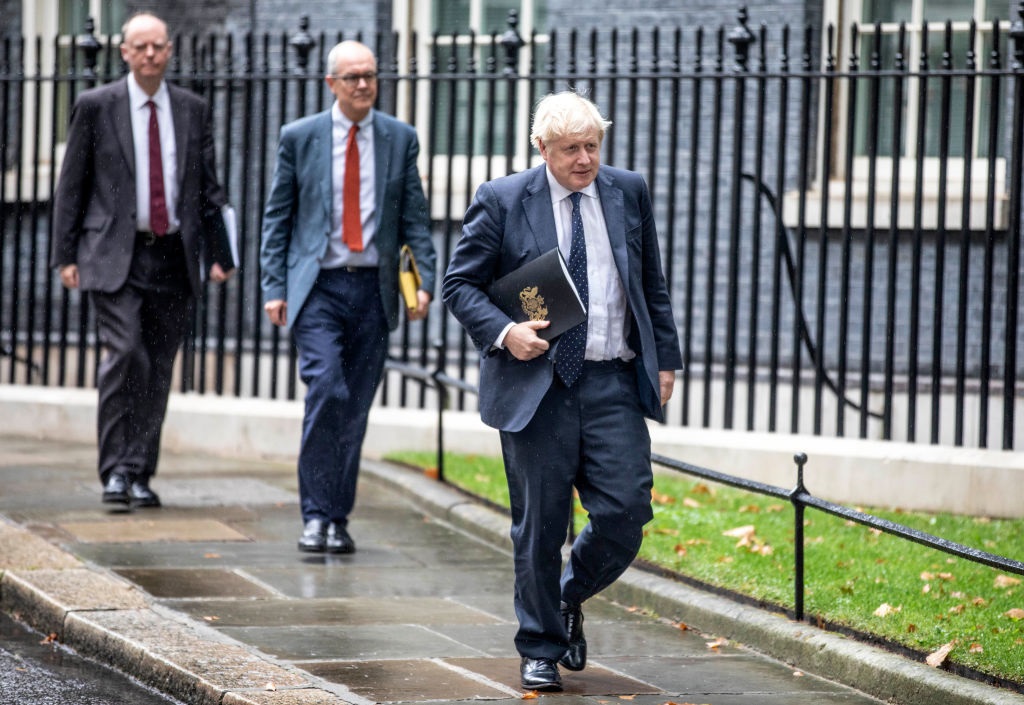- Monday, February 24, 2025
The inquiry is poised to investigate whether adequate consultation with scientists occurred during pivotal moments

By: Kimberly Rodrigues
The official inquiry into the Covid-19 pandemic is anticipated to disclose compelling evidence this week, regarding the tensions and disputes among the then prime minister Boris Johnson, his ministers, and the country’s top scientific advisors.
Sir Patrick Vallance, the government’s former chief scientific adviser, is set to provide evidence during an extensive all-day session on Monday (20), The Guardian reported.
His private diary excerpts, selectively quoted in the inquiry, are expected to shed new light on the governmental chaos during the global virus outbreak.
Following Vallance, other leading scientists who stood alongside ministers during the televised daily Covid press conferences will also testify before the inquiry.
On Tuesday, the all-day appearance of professor Chris Whitty, England’s chief medical officer, is scheduled.
Following this, on Wednesday, the inquiry will hear from professor Jonathan Van-Tam, the former deputy chief medical officer, and the current chief scientific adviser, Professor Dame Angela McLean.
Notably, McLean, who referred to the-then chancellor Rishi Sunak as “Dr Death” in the aftermath of the Treasury-initiated “eat out to help out” scheme in August 2020, will also provide testimony.
The inquiry is poised to investigate whether adequate consultation with scientists occurred during pivotal moments, including the implementation of the eat out to help out scheme, aimed at providing the public with incentives to dine out through discounts on restaurant bills.
Furthermore, the inquiry is likely to scrutinise whether scientists encountered political pressure to align with the government’s stance, potentially leading to a lack of transparent communication about the actual extent of existing dangers to the public.
A former government minister, knowledgeable about the Covid threat during that period, said in the initial stages, “there was a political imperative not to overstate or overreact.”
The minister highlighted that the scientists, unaccustomed to appearing alongside politicians in Downing Street during televised press conferences, likely experienced pressure to moderate their statements. This, according to the minister, posed a significant challenge.
One potential challenge facing the scientists involves emerging evidence indicating disparities between their private warnings about the severity of the Covid pandemic and their public statements.
For instance, disclosures revealed Dominic Cummings, Johnson’s former chief adviser, conveyed on a No 10 aides’ WhatsApp group on 6 February 2020 that Vallance had expressed concerns about the virus being “probably out of control now and will sweep the world.”
In contrast, on 25 February 2020, during a briefing for journalists, Whitty and Vallance indicated that data from China suggested the possibility of containing the virus.
Vallance mentioned, “We’ve always taken the view that this may either be containable or it may not.”
One excerpt from Vallance’s pandemic diary, disclosed to the inquiry, detailed chaos within Number 10: “On Friday, the two-metre rule meeting made it abundantly clear that no one in Number 10 or the Cabinet Office had really read or taken time to understand the science advice on two metres. Quite extraordinary.”
In their original witness statements, Vallance and Whitty highlighted that “had they been consulted” regarding the eat out to help out scheme, they would have advised against it because they suspected that the scheme might increase Covid-19 transmission during a critical phase in controlling the virus in the UK.